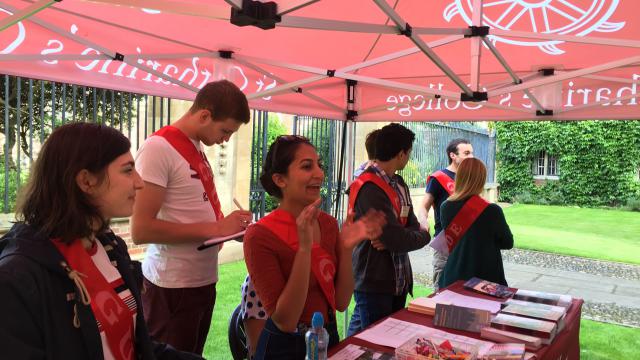
Biosecurity: Are we prepared?
The Biosecurity Research Initiative at St Catharine’s College, Cambridge (BioRISC), held its inaugural event at the Houses of Parliament on 16 July 2019. To mark the launch of the BioRISC initiative, a panel discussion about biosecurity was moderated by Sarah Mukherjee (Chief Executive, Crop Protection Organisation). Panelists took questions about biosecurity from an audience that included politicians, academics, and students from two London schools, Pimlico Academy and Isaac Newton Academy. The panelists were Professor Austin Burt (Professor of Evolutionary Genetics, Imperial College), Professor Helen Roy (Centre for Ecology and Hydrology and co-chair of the IPBES invasive species assessment), Professor John Aston (Home Office Chief Scientific Adviser), Nicola Spence (Government Chief Plant and Health Officer), and Kerry McCarthy MP (Former Shadow Secretary of State for Environment, Food and Rural Affairs, and Member of both the Environment, Food and Rural Affairs and the Environmental Audit Select Committees).
At a reception on the terrace, overlooking the River Thames, Lord Des Browne (BioRISC, House of Lords) noted that it has been one year since the publication of the UK Biological Security Strategy, and he spoke about his hopes that BioRISC would help to improve collaboration between policy makers and researchers. Professor William Sutherland (BioRISC, University of Cambridge) thanked the David and Claudia Harding Foundation for funding BioRISC and described the scope of BioRISC, which includes bioengineering, invasive species, bioterrorism, and emerging diseases. He then described the set of research methods that BioRISC is using to provide evidence to policy makers including horizon scanning for forthcoming problems, identifying priorities for research and policy, determining how risks are spread, and synthesizing evidence for solutions. Despite stereotypes about academics working in ivory towers, he said that the academics working on BioRISC are interested in being useful to policy makers, and he invited policy makers to collaborate with them.




